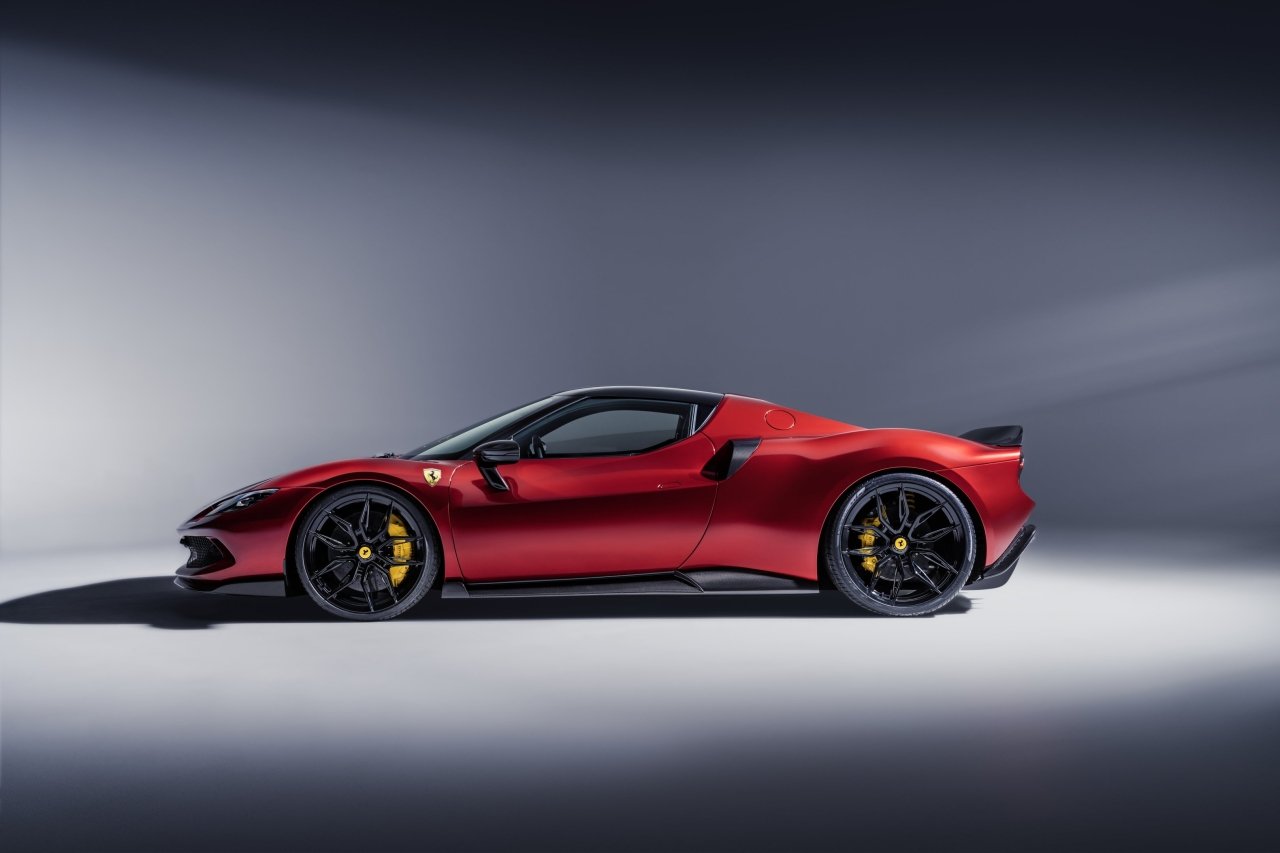China's Impact On Luxury Car Sales: The BMW And Porsche Case Study

Table of Contents
BMW's Success Story in China: A Market Leader's Approach
BMW's dominance in the Chinese luxury car market is a testament to its shrewd adaptation to local preferences and market dynamics. This success is built upon a multifaceted strategy encompassing targeted marketing, product localization, and a robust customer service network.
Targeted Marketing Strategies for the Chinese Consumer
BMW’s marketing campaigns in China are far from generic. They leverage a deep understanding of Chinese consumer preferences, employing strategies tailored to resonate with the local market. This includes:
- Extensive use of social media platforms: WeChat, Weibo, and other popular Chinese social media channels are utilized for targeted advertising, interactive campaigns, and building brand affinity.
- Strategic celebrity endorsements: Collaborations with popular Chinese celebrities and influencers lend credibility and appeal to BMW's brand image.
- Digital engagement and experiential marketing: BMW actively participates in online events, sponsorships, and creates interactive experiences that foster a strong connection with Chinese consumers.
For example, BMW’s successful collaboration with renowned Chinese basketball player Yao Ming proved highly effective in reaching a broad audience. Their use of interactive online games and virtual showrooms also contributed significantly to brand engagement.
Localization and Product Customization
Recognizing the unique needs and desires of Chinese consumers, BMW has implemented a successful product localization strategy. This includes:
- Development of long-wheelbase versions: Catering to the preference for spacious rear seating, BMW offers extended versions of popular models, specifically designed for the Chinese market.
- Customization options tailored to Chinese tastes: Specific color options, interior trims, and technological features are offered to align with local aesthetic preferences.
- Focus on technology and innovation: Chinese consumers highly value technological advancements. BMW emphasizes this aspect in its marketing and product offerings.
The introduction of the long-wheelbase 7 Series and the tailored customization options for the X5 demonstrate BMW’s commitment to meeting the unique demands of the Chinese luxury car market.
Dealership Network and Customer Service
A strong dealership network and exceptional customer service are integral to BMW's success in China. They focus on:
- Extensive dealership network across major cities: Ensuring accessibility and convenience for customers throughout the country.
- Highly trained sales and service personnel: Providing knowledgeable support and personalized service to customers.
- Efficient after-sales service and maintenance: Building trust and customer loyalty through prompt and reliable service.
BMW’s investment in its dealer network and customer service infrastructure has proven crucial in cultivating customer satisfaction and fostering brand loyalty within the competitive Chinese luxury car market.
Porsche's Triumph in China: A Niche Player's Strategy
Porsche, while a smaller player compared to BMW, has carved a significant niche in the Chinese luxury car market. Its strategy emphasizes brand prestige, sustainable practices, and a strong digital presence.
Prestige and Brand Building in China
Porsche meticulously cultivates its brand image, focusing on exclusivity and premium quality. This involves:
- Maintaining a strong brand identity: Emphasizing Porsche's heritage, performance, and craftsmanship.
- Targeted events and experiences: Creating exclusive events and experiences to strengthen brand association with luxury and prestige.
- Strategic partnerships with high-end brands: Associating with brands that complement Porsche's luxury image.
Porsche’s meticulous approach to brand building has resonated powerfully with affluent Chinese consumers seeking status and exclusivity.
Electric Vehicle (EV) Focus and Sustainability Initiatives
Recognizing the growing importance of sustainability amongst Chinese consumers, Porsche has aggressively invested in electric vehicles (EVs) and sustainability initiatives:
- Launch of electric models like the Taycan: Catering to the increasing demand for eco-friendly luxury cars.
- Investment in charging infrastructure: Supporting the adoption of EVs through investments in charging stations.
- Communication of sustainability efforts: Highlighting Porsche’s commitment to sustainability through marketing and public relations.
The Taycan's success in China demonstrates the effectiveness of Porsche's strategy in aligning with the evolving preferences of environmentally conscious luxury car buyers.
Digitalization and Omni-channel Approach
Porsche employs a sophisticated digital strategy to reach and engage Chinese consumers:
- Robust online presence and e-commerce capabilities: Providing a seamless online experience for browsing, configuring, and purchasing vehicles.
- Utilizing digital marketing channels effectively: Targeting specific demographics through social media, online advertising, and search engine optimization.
- Integration of online and offline channels: Creating a cohesive omni-channel experience for customers.
Porsche's digital-first approach has proven highly effective in engaging a digitally savvy Chinese consumer base.
Comparative Analysis: BMW vs. Porsche in the Chinese Market
While both BMW and Porsche enjoy success in China, their approaches differ. BMW, with a broader product portfolio, focuses on wider market penetration through localization and strong dealership networks. Porsche, on the other hand, maintains a premium, niche position, emphasizing brand exclusivity and sustainable technology. Both have adapted to the unique aspects of the Chinese luxury car market – but their strategies reflect their respective brand identities and market positioning. BMW's success lies in its broad appeal, while Porsche's strength comes from its unwavering dedication to its premium brand image. The competitive landscape in China demands adaptability and a deep understanding of the evolving consumer preferences.
Conclusion: The Future of Luxury Car Sales in China
China's impact on luxury car sales is undeniable. Both BMW and Porsche’s success stories demonstrate the importance of understanding and catering to the unique characteristics of this dynamic market. Targeted marketing, product localization, strong customer service, a focus on sustainability, and robust digital strategies are paramount for success. To stay ahead in the ever-evolving luxury car market, understanding China's impact is crucial. Explore further resources on luxury car market trends in China to gain a deeper understanding of this pivotal market and the innovative strategies brands are employing to thrive.

Featured Posts
-
 Mwshr Daks Alalmany Awl Mwshr Awrwby Ytkhta Dhrwt Mars
May 25, 2025
Mwshr Daks Alalmany Awl Mwshr Awrwby Ytkhta Dhrwt Mars
May 25, 2025 -
 Understanding The Thames Water Executive Bonus Debate
May 25, 2025
Understanding The Thames Water Executive Bonus Debate
May 25, 2025 -
 Hells Angels An Examination Of Their Criminal Activities And Law Enforcement Response
May 25, 2025
Hells Angels An Examination Of Their Criminal Activities And Law Enforcement Response
May 25, 2025 -
 Compreendendo O Ferrari 296 Speciale Um Hibrido De Alta Performance
May 25, 2025
Compreendendo O Ferrari 296 Speciale Um Hibrido De Alta Performance
May 25, 2025 -
 Presidential Seals 100 000 Watches And Marriott Parties Unpacking The Details
May 25, 2025
Presidential Seals 100 000 Watches And Marriott Parties Unpacking The Details
May 25, 2025
